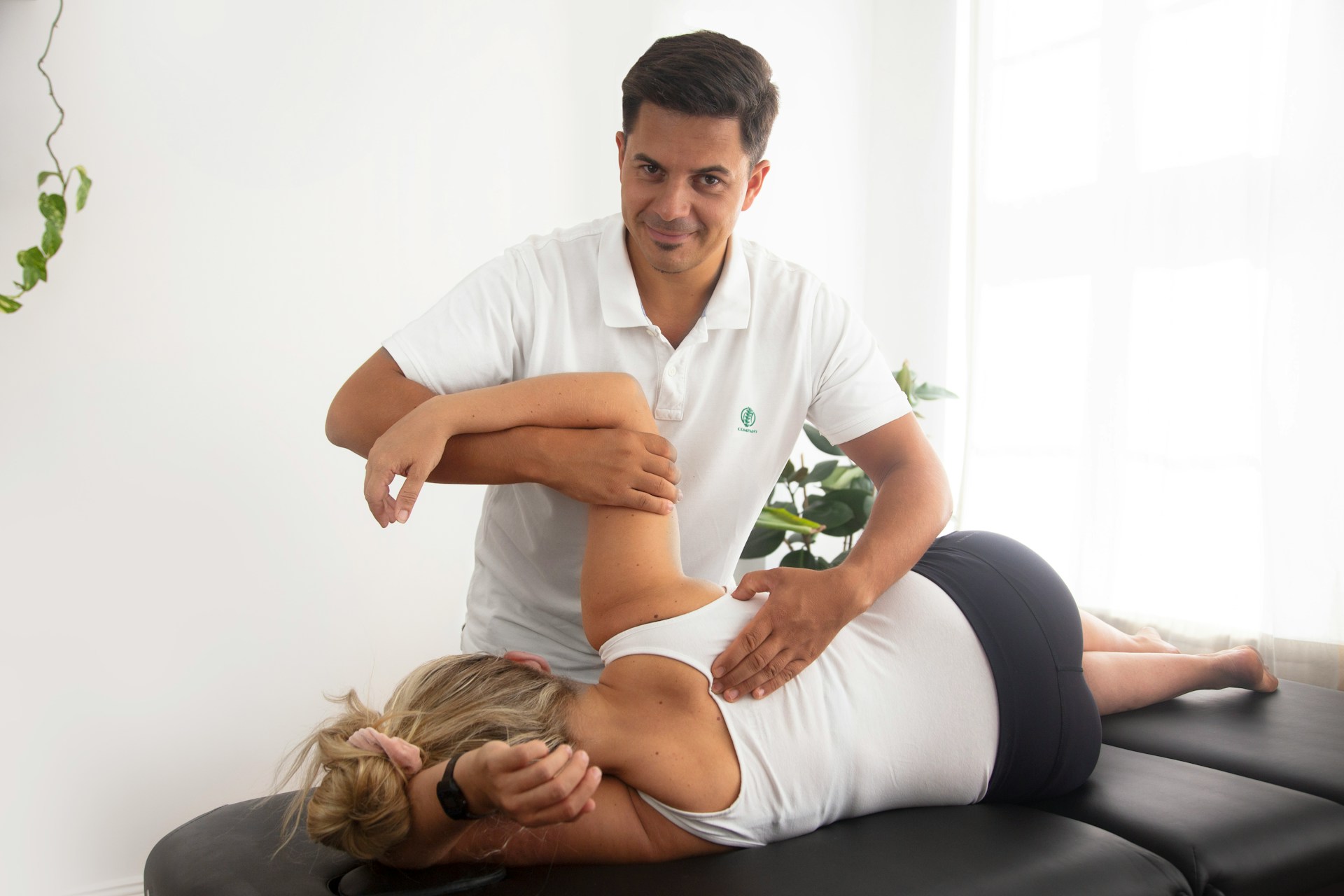Neck pain can sneak up on you after a rough night’s sleep. You might wake up with stiffness, a dull ache, or even a headache that sticks around all day. It’s a common complaint, but often it has a simple cause that’s overlooked—how you sleep. The position you’re in for 7 or 8 hours each night plays a big role in how your neck feels in the morning.
Some sleeping positions put strain on your neck, misalign your spine, or make your muscles work harder while you rest. That’s why understanding the best way to sleep can help prevent neck pain in the first place. By making a few adjustments, you can wake up feeling more refreshed and less achy.
Common Causes of Neck Pain During Sleep
A sore neck isn’t always from something you did during the day. The way your body is positioned while you sleep can stretch or twist the neck in ways it shouldn’t. One main cause is poor neck and spine alignment. If your head is tilted too far forward, backward, or to the side, gravity starts working against you rather than with you.
It’s not just about how you lie down. Here are a few other sleep-related reasons people deal with neck pain:
– Wrong pillow height or firmness: If your pillow is too flat or thick, it can throw your neck out of line with the rest of your body.
– Old mattress: A mattress that sinks in some places more than others or doesn’t support your body evenly can create pressure points, especially in your shoulders and upper back.
– Sleep environment: Sleeping in a cold room or under a draft can lead to neck muscle tension. Same goes for using too many pillows or curling up in tight positions.
– Stress and sleep posture: Anxiety and mental stress can affect how tense your body is at night. Some people clench their jaw or scrunch their shoulders during sleep without even realising it.
Even something as simple as falling asleep on the couch in an awkward position can trigger moderate neck pain. If you notice your discomfort is worse after sleep and gets easier during the day, there’s a good chance your sleep posture is part of the problem.
Best Sleeping Positions to Prevent Neck Pain
You don’t need to completely retrain the way you sleep, but small changes to your position can make a big difference to how your neck feels when you wake up.
1. Side sleeping: This is one of the more supportive positions when done right. Keep your head in line with your spine. A pillow that fills the gap between your shoulder and ear helps maintain neck alignment. Try placing a pillow between your knees to support your hips too.
2. Back sleeping: Lying on your back lets your head, neck and spine rest in a neutral position. Choose a pillow that supports the natural curve of your neck. Some people roll up a small towel and tuck it under their neck or use a contoured pillow for extra support.
3. Avoid stomach sleeping: Sleeping on your stomach might feel comfy at first, but your head has to twist to one side for hours at a time. That kind of pressure isn’t great for the neck or spine. If you currently sleep this way, try easing into side or back sleeping by using a body pillow for support.
Changing a long-standing habit takes patience and won’t feel natural right away. One easy trick is to start in your new position when you first lie down, even if you sometimes roll over in the night. Over time, your body can adjust to a new, more neck-friendly posture.
Additional Tips for Neck Pain-Free Sleep
Getting into the right sleeping position is a great start, but it’s only part of the full picture. The way you set up your bedroom and how you take care of your body during the day also plays a role in how your neck feels overnight. If neck pain has been giving you grief, a few extra changes might help reduce it.
Start with your pillow. It should support your head without pushing it too far forward or letting it drop back. Look for one that suits your chosen sleep position. For example, side sleepers may need a thicker pillow to fill the space between their head and the mattress, while back sleepers might sleep better with something flatter. Some people find they sleep more comfortably with memory foam or contoured pillows that support the curve of their neck.
As for your mattress, it should allow your spine to rest in its natural curves. If it’s too soft or saggy in one section, your neck and back won’t stay level through the night. Even if you’re in a good sleeping position, an uneven mattress can undo all the effort.
Daily habits matter too. Poor posture throughout the day puts strain on your spine that carries through to bedtime. If you’re often looking down at your phone or sitting hunched at a desk, your neck muscles might already be tight before you even put your head on the pillow.
Here are a few daily tips for reducing neck tension and supporting better sleep:
– Sit with your back straight and shoulders relaxed, especially if you work at a desk.
– Use phone and computer screens at eye level to avoid looking down for long periods.
– Stretch your neck and upper back gently during the day.
– Avoid heavy dinner meals and caffeine too late. Quality sleep is harder when your body is too alert.
– Wind down before bed with quiet activities like reading or listening to soft music. A calm mind can help relax tense muscles.
Making small adjustments during the day and night gives your body a better chance of staying relaxed and aligned.
How Capel Sound Chiropractic Can Help
When neck pain sticks around, it’s easy to feel like you’ve tried just about everything. Even with good sleep habits, the problem can sometimes go deeper than your night routine. That’s when seeing a chiropractor can really help. Chiropractors focus on how your spine, muscles, and nervous system work together. If your neck is out of alignment, it can affect more than just your sleep.
A chiropractor can assess how well your spine moves and find areas where things aren’t working smoothly. From there, they use hands-on techniques to ease joint stiffness and help your muscles relax. This can improve your movement and ease pressure on nerves that could be making your neck hurt, especially when lying down.
They might also notice posture habits you’re not aware of that could be feeding into the pain. For instance, if your shoulders are rounded during the day, it may be pulling your neck forward at night without you knowing it. By looking at your full movement patterns, a chiropractor can help interrupt the cycle of ongoing tension and discomfort.
Seeing a chiropractor isn’t about quick fixes. It’s a way to build lasting support for your spine, whether you’re working, sleeping, or staying active. With the right advice, your sleep setup can start working with you rather than against you.
Embrace a Pain-Free Sleep Routine
It’s easy to miss how much your sleep habits affect your neck, but small changes really do make a difference. Once you feel the benefits of better support and positioning, it’s hard to go back. Paying attention to your sleeping posture, room set-up, and daytime habits can help prevent those aches from becoming daily problems.
Start by being kind to your neck. Use a pillow that gives you good support, sit and stand in a way that keeps your spine in line, and steer clear of positions that twist your body during sleep. Creating a helpful routine doesn’t mean chasing perfection—it just means taking small, steady steps in the right direction. With those shifts, better sleep and less neck pain become a realistic goal.
If neck pain is getting in the way of your sleep or daily routine, making a few changes and getting the right support can make all the difference. At Capel Sound Chiropractic, we offer tailored care that focuses on your comfort and wellbeing. Find out how a chiropractor for neck pain can help you rest easier and move through your day with less tension.





